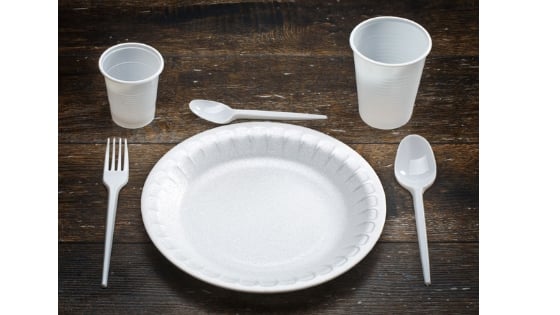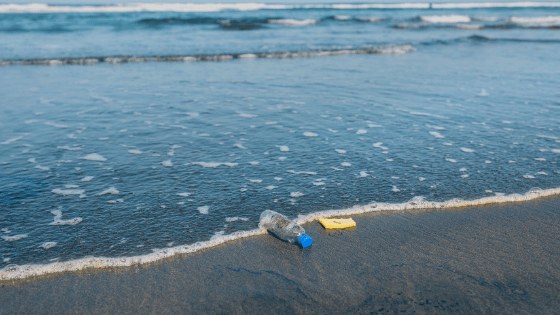
Single Use Plastic Ban: Will It Actually Work In Australia? ❌
Single Use Plastic Ban ❌: As Waster is very much committed to helping the environment and reducing waste going to landfill, we have strong opinions on any single use plastic bans.
>Download Now: Free PDF Business Owners Guide To General Waste Bin Services
As a waste and recycling business, we are very keen on recycling as it is how we make money. However, in recent months, we have really come round to the view that prevention is much better than cure when it comes to the issues presented by plastics in general. We have also contemplated thoroughly whether there should be a national or international single use plastic ban implemented.
Since plastics were unleashed on the global markets in the middle of the 20th century, their clear benefits such as them being sterile, long-lasting, clean, cheap, etc. have seen them being introduced into nearly every aspect of daily life.
We use them to brush our teeth, hold our lunches, drink through, and everything in between. They are basically used everywhere!
The main problem is that we use them for a short time – even just a few seconds before throwing them away in our bins.
We have covered other blogs that debate whether there should be a single use plastic or not such as the how-to guides in waste reduction and the long-standing debate of recycling’s effectiveness.
Why recycling single use plastic is almost impossible in 2021?
We would all like to believe that recycling single use plastic will solve the problem and make everything okay as a result.
However, the reality is that only a tiny percentage of single use plastic is recycled globally. And lots of it will never be. This means that huge amounts end up in landfill – or much, much worse – in our seas and oceans where it is consumed by sea life. We do not know the long term damage caused to the environment yet as of now.
Main reasons preventing recycling include:
- The plastics are in small amounts in different places; it is almost impossible to separate commercially.
- The products are a mixture of various materials and need complex systems to separate and recycle each component – think about the coffee cup issue.
- There is no actual market for lots of recycled low-grade plastic. For example, low-grade plastic bags are recycled into things like park furniture and flooring for gyms in Australia by REDcycle, but no one actually buys them.
- Even for higher-grade plastics, the global economy is skewed, with production and consumption often happening in different continents, let alone countries. Why recycle a product that will then have to be shipped overseas to be actually used? This is a huge downside of the collapse of manufacturing in Australia.
We are basically in a bind. And, a single use plastic ban has to be a part of the solution.
The only long term solution is a single use plastic ban on an international basis
We often like to think that the market can solve all problems (i.e., we do not need the government getting involved). However, in this instance, I argue that we really need a ban on single use plastics on many other types of plastic going forward.
This would be accompanied by a large investment in new recycling facilities, specifically for plastics and on increased research and development for truly compostable and biodegradable plastic alternatives such as corn starch plastics. There should also be a focus on finding other solutions to single use plastic bottles (i.e., an alternative).
If we put our money behind it, we have to produce viable, mass-market and truly compostable plastic alternatives with our abilities.
Do we need an actual ban? Can we not just reduce single use plastic voluntarily?
I usually argue that the Government messes things up more than they help and even stated recently that food waste should not be subject to a waste levy in Australia. Organic waste processing should be touched on more, researched and implemented.
However, I see this as more like the battle to ban CFCs in the late 80s or 90s to rescue the ozone layer. Whilst I am by no means an expert, I believe this has been very successful.
This, of course, required a global ban, involving all the big manufacturers and global monitoring and penalties etc.
Would people not just go along with it?
The ABC recently covered the confusion created by the rollout of a single use plastic ban in Darwin markets held on public land.
“The council have spoken with stallholders and said they can phase out what existing packaging they have.
“While a number of stores had made the switch, Ms McCourt said non-compliant vendors would be prevented from trading until they ditched the plastic.
“Some areas are very achievable and people may not even notice that like [switching to] plant-based straws.
“The change has also proved a challenge to Darwin’s market-loving population, which flocks to eat and drink across a number of suburban markets every weekend.
“On one wet season weekend last year, an audit found that thousands of coffee cups and pieces of plastic cutlery, as well as more than 30 kilograms of plastic food containers, were destined for landfill after a day’s trade.”
This sort of outcome is very predictable, as also seen in the pushback on the single use plastic bag ban recently. See our new blog on soft plastic recycling options.
The population is made up of a full spectrum of people; many will try very hard to avoid plastic, but others could not care less.
It was also pointed out that stallholders paying three times the price for compostable coffee cups is quite absurd when in all actuality, no facility exists that is capable of recycling them in the NT at all! It is almost just window dressing.
Also, it is quite crazy when you can simply walk into any local supermarket and stock up on as many plastic forks and spoons as you like.
Conclusion
A single use plastic ban needs to happen as part of a joined up solution globally. This will involve significant enforcement and monitoring alongside investment in recycling and viable and economical alternatives such as biodegradable plastics (such as an alternative to single use plastic bottles).
We ask in another blog whether using plastic in road construction is actually a good idea – go check it out.
The single use plastic ban implementation on a particular country
When we talk about should single use plastic being banned, many people often ask if it is even possible. Will Australia ban single use plastic soon? The answer: not likely.
Vanuatu, the small Pacific Ocean island nation, has already taken the plunge. The island, most famous for its diverse culture and tropical environment, is leading the global movement to a no single use plastic future.
The Huffington Post reports on how Vanuatu is leading the way:
“Vanuatu banned single use plastic bags, drinking straws and styrofoam food containers last July in a dramatic attempt to stem the flow of trash from the country’s coasts into the ocean.
“Violators now face hefty fines between $175 and $900 an offence.”
But, it does not end there. The country is going much further:
“The country’s foreign minister, Ralph Regenvanu, announced on Feb. 17 that the government would expand the current ban to include a slew of additional single use products. On the chopping block are disposable diapers, plastic cutlery and grocery packagings like netting and clamshell cases.”
How is this plastic ban actually working in reality?
Anyone who remembers the pushback on the plastic bag ban in Australia introduced a couple of years ago will know that stopping single-use plastics is by no means easy – both from a political and practical perspective. See our blog on whether straws can be recycled.
The good news from Vanuatu is that the ban generally appears to be working and has wide-based community support.
“The problem with plastics is not simply a litter problem, it is a pollution problem created by corporations and mismanaged by governments, and it should be treated as an inherently dangerous substance,” Kopp said in an email. “Blaming consumers for littering, and asking them to change their behavior will never solve this problem. The only way to make sure throwaway plastic does not end up in the environment is to tackle it at the source and stop its production.
“Regenvanu noted that Vanuatu’s efforts may be a unique case study that only really works in a small nation. The country only has one major company that produces plastic products, and lawmakers have been working with the firm directly to help it adapt to the new policies.”
What Australia can learn from this
Making any major change to how we live is not easy, particularly on a global level. Vanuatu is a great case study as it is a small nation with limited consumer culture (by Western standards). Banning single use plastic experiences from other countries can certainly become a lesson for Australia.
See information on recycling in the Philippines here for a similar good read.
The seemingly positive start to the single use plastic ban is very promising. Whether it can be so successful in other countries is certainly questionable.
Leave a Reply Cancel reply




